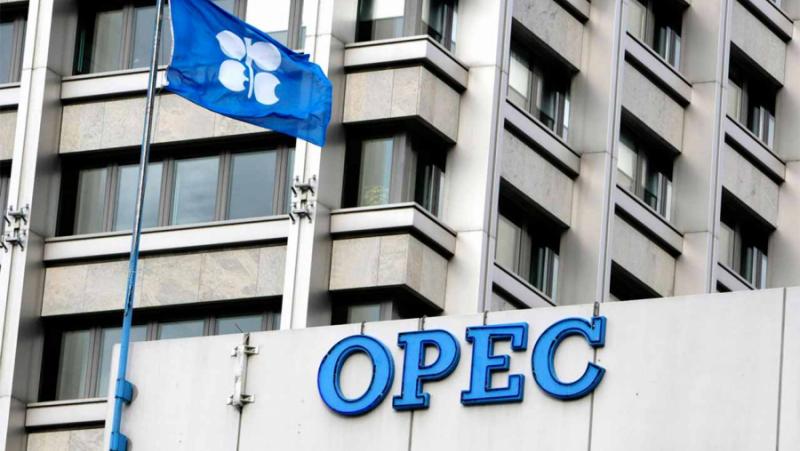/ world today news/ Disagreements between Saudi Arabia and the UAE led to a drop in oil prices. Last year, a similar situation led to the collapse of global quotations and the price of a barrel at one point became negative. The market now fears a repeat of the 2020 scenario. How realistic is that?
Oil prices fell sharply – by 3-4%. The reason was the cancellation of the OPEC + meeting due to disagreements between its members – the UAE and Saudi Arabia. The United Arab Emirates has decided to increase its production of black gold to capture more market share amid strong demand, Dow Jones said on Tuesday. This news caused a sharp crash in oil. The ruble did not get away with it – and also weakened.
Everything that happened the day before was a vivid reminder of how similar differences flared up last year between Russia and Saudi Arabia over the OPEC+ deal. After the deal was cancelled, the members of OPEC + began to uncontrollably increase production, a real price war began in the market to capture a larger segment of the market. Then they announced a pandemic and lockdowns, and the price war between the KSA and the Russian Federation turned into a historically memorable event – oil prices went negative. The market is scared of a repeat of these events.
“Two events are now superimposed, which are colorfully reminiscent of the development of events in early 2020. This is a sustained rise in oil prices and increased friction between OPEC + countries. The characters are a little different, but this did not help oil to escape from a cold shower, ”says Alexander Kuptsikevich, an analyst.
A year ago, and now, oil was heating up speculatively. “Quotations have shown extremely sustained growth over the past month and a half. This created a technical overheat in the quotes. This is a situation where an overreaction to bad news can follow, as too many speculators are waiting for the moment to cash in their profits,” says Kuptsikevich.
Something similar happened in 2014. “Then OPEC, after many months or even years of very poor compliance with quotas, suddenly decided to use market forces in a winner-take-all fashion, sharply increasing production. Then the situation was worsened by the situation of the strengthening dollar, which depressed the prices of commodity assets and caused an outflow from the markets of developing and export-oriented countries, “Kuptsikevich recalls.
After cashing in, oil began to correct on Wednesday after yesterday’s impulsive reaction. “Oil is already in a delicate balance. In the absence of official statements, market participants must listen to informal conversations on the sidelines. “Investors continue to assess the prospects for a price war that could hamper the recovery of the global economy, exacerbate inflationary pressures and become an argument for the Federal Reserve to tighten policies,” said Yannis Kivkoulis, chief strategist at Exant. .
He indicates several scenarios for the development of events. First, under pressure from buyers, OPEC+ will still reach an agreement to gradually increase production in August. Second, the cartel will stick to existing quotas and then prices will continue to rise to $80 and above. And finally, the third scenario – the cartel will not be able to reach an agreement that will reduce prices to 50 dollars per barrel. But the latter is the least likely scenario, Kivkulis believes, precisely because OPEC+ still has memories of early 2020 and will not repeat the destructive price war. But the strengthening of the correlation between the ruble and oil is a worrying sign, according to Kivkulis.
In recent years, thanks to the fiscal rule, the ruble stopped blindly following the movement of oil. If oil prices have doubled since November 2020, then the ruble is only 9% against the dollar. But now the ruble could not stand.
“The nervousness of the ruble is particularly noticeable given the strict monetary policy of the Bank of Russia, which has been actively raising interest rates this year, and recently its representatives have hinted at their readiness to move forward with broad steps. Judging by these signs, the Russian currency will have very volatile weeks or even months,” Kivkulis said.
The ruble this quarter could fall to 75 to the dollar, regardless of the OPEC+ decision and despite the increase in the main interest rate by the Bank of Russia, predicted Dmitry Dolgin, an economist. By the end of the year, however, the ruble may strengthen to 73 per dollar.
Kivkulis does not rule out that the dollar could quickly return to 80 rubles amid increased market turbulence and the oil correction. “However, it is too early to say that we are on the verge of another major devaluation. As a rule, this happens after a long period of growth of the Russian currency, and now this is not the case,” the source said. “The good news for Russians is that a sharp rise in the price of gasoline should not be expected. In contrast to the US, where fuel prices have risen to a seven-year high, following the rise in oil,” notes Kivkoulis.
So far, the decline in oil doesn’t look too tragic. This week will be important for understanding the further course. “So far we have simply seen an impulsive reaction in the markets and the Russian ruble to the factors that have provoked the storm in recent years: a rising dollar, peak oil and friction in OPEC +.”
One should only worry if such turbulence as on Tuesday continues in the coming days and oil falls below 70 and the dollar rises above 75 against the ruble this week. This will be a proof of the strength of the sellers and a harbinger of a change in the trend in the coming weeks,” warns Alexander Kuptsikevich.
In his opinion, despite the alarming signals, the ruble and oil will still be able to maintain the growth trend, as the economy continues to receive a dose of stimulus in the form of extremely soft monetary policy in key world regions and oil supply still lags demand and the deficit is filled from reserves.
The perfect storm for oil and the ruble will only happen if all three threats simultaneously return to the agenda. This will happen if, in addition to OPEC+ discord and rapid production growth, sanctions risks return and the Federal Reserve begins to remove dollar liquidity, which markets will not be ready for.
“The future is likely to contain only one or two of the listed negative factors. In this case, oil prices will cool down, but they will not drop like a stone, “concludes the expert.
Translation: V. Sergeev
#oil #market #spooked #repeat

